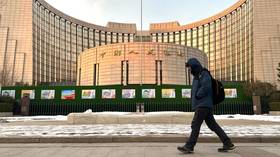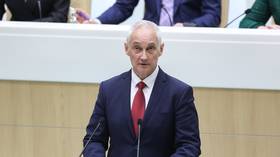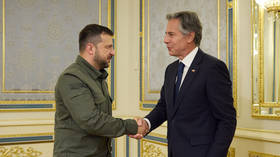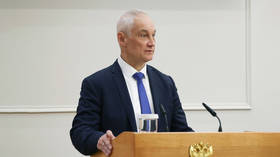Half of Russia-China payments conducted via third parties – Reuters

Up to half of transactions between Russia and China are facilitated by means of intermediaries to avoid exposure by Chinese lenders to the risk of secondary sanctions, Reuters reported on Friday, citing trade consultants and bankers, as well as importers and exporters.
In December, US President Joe Biden signed an executive order that takes additional steps against facilitating transactions with Russia. At the time, the US Treasury was calling on foreign banks to boost compliance with anti-Russia sanctions.
In March, newspaper Izvestia revealed that several Chinese banks, including the Industrial and Commercial Bank of China, stopped accepting payments in yuan from Russia for fear of secondary sanctions, with almost 80% of payments to China coming back.
According to informed sources speaking with Reuters on condition of anonymity, middlemen helping Moscow and Beijing to carry out cross-border payments are represented by legal entities in Hong Kong, Kyrgyzstan, Kazakhstan, the UAE and other nations that have opted not to back sanctions policies targeting Russia.
Some companies have reportedly switched to the services of payment agents, creating chains of temporary firms to make payment processes faster.
Two Russian consultants working with intermediaries told the news agency that nearly half of Russian entities working with Chinese firms are opting for their services, while major Russian businesses, most of which were targeted by Ukraine-related sanctions, established schemes with middlemen a year ago.
Shipment delays and prolonged transactions have reportedly forced businesses to turn to intermediaries, despite increased fees that may amount to several thousand dollars for each transaction, as well as a major risk of sanctions-related shipment seizures in third countries. According to one of the sources, a large batch of servers being transferred to Russia from China via Kazakhstan was confiscated after the shipment fell under the scope of US sanctions.
The use of intermediaries doesn’t provide companies with guarantees, as payments can still be refused by Chinese banks, while the less official nature of those settlements means that Russian firms may struggle to get their money back. Only a fifth of Russian firms reportedly have full access to their Chinese bank accounts, while 30% have limited access.
Some businesses, according to Reuters’ sources, have expressed hope that President Vladimir Putin’s visit to China next month will help resolve the issue, while others are less optimistic, one remarking that Russia is not a top priority for Chinese banks, despite booming trade between the nations.













